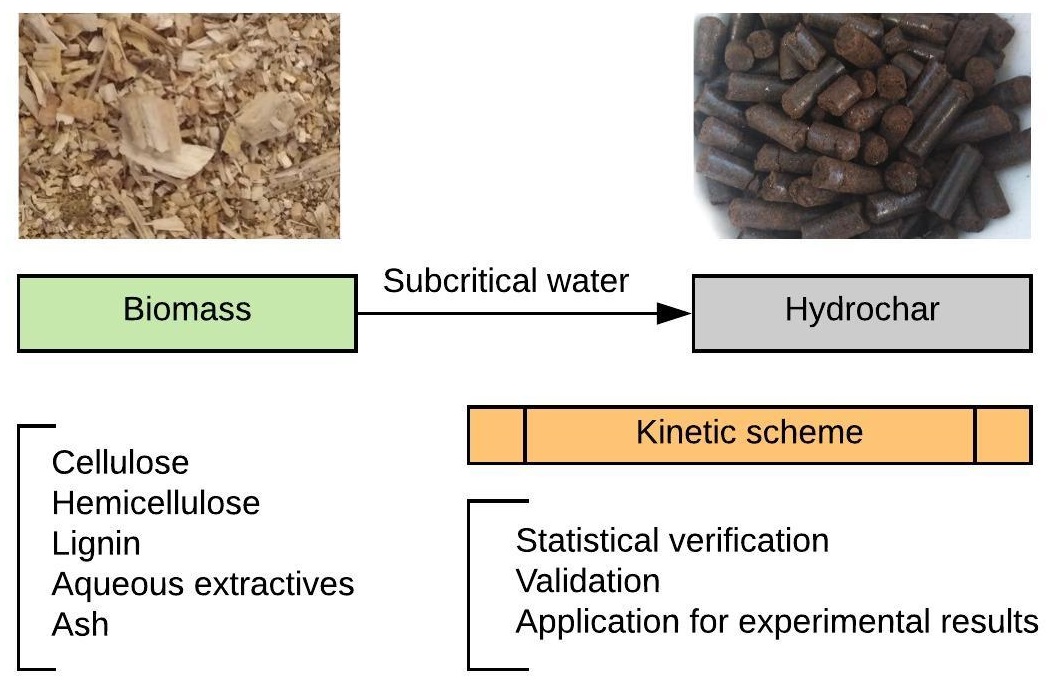This study presents a new kinetic scheme for the mass yield prediction of waste lignocellulosic biomasses treated by Hydrothermal Carbonization (HTC). The proposed reactions are based on the decomposition, solubilization, and polymerization of each main fraction of the biomass: cellulose, hemicellulose, and lignin. The ash content was assumed to be inert. The kinetic parameters have been obtained by non-linear adjustment using a data set with 220 experimental runs collected from the literature. The results indicate that the pre-exponential factors range was from 7.33 x101 to 1.412x105 min-1, and activation energies were between 33.75 y 225.3 kJ/mol. A good fit is achieved between the observed and predicted data with an R2 of 0.81 and an RMSE of 7.7 %. The proposed scheme was validated with the experimental data obtained by the HTC of sawdust (Pinus radiata) and rapeseed (Brassica napus). The experiments were carried out at temperatures of 190, 220, and 250 ºC and reaction times of 0, 30, 60, 90, and 120 min. The predicted values showed an average error of 2.3 and 3.5 %, respectively. Therefore, the kinetic scheme is a useful tool in the conversion analysis of waste biomass treated by HTC.

